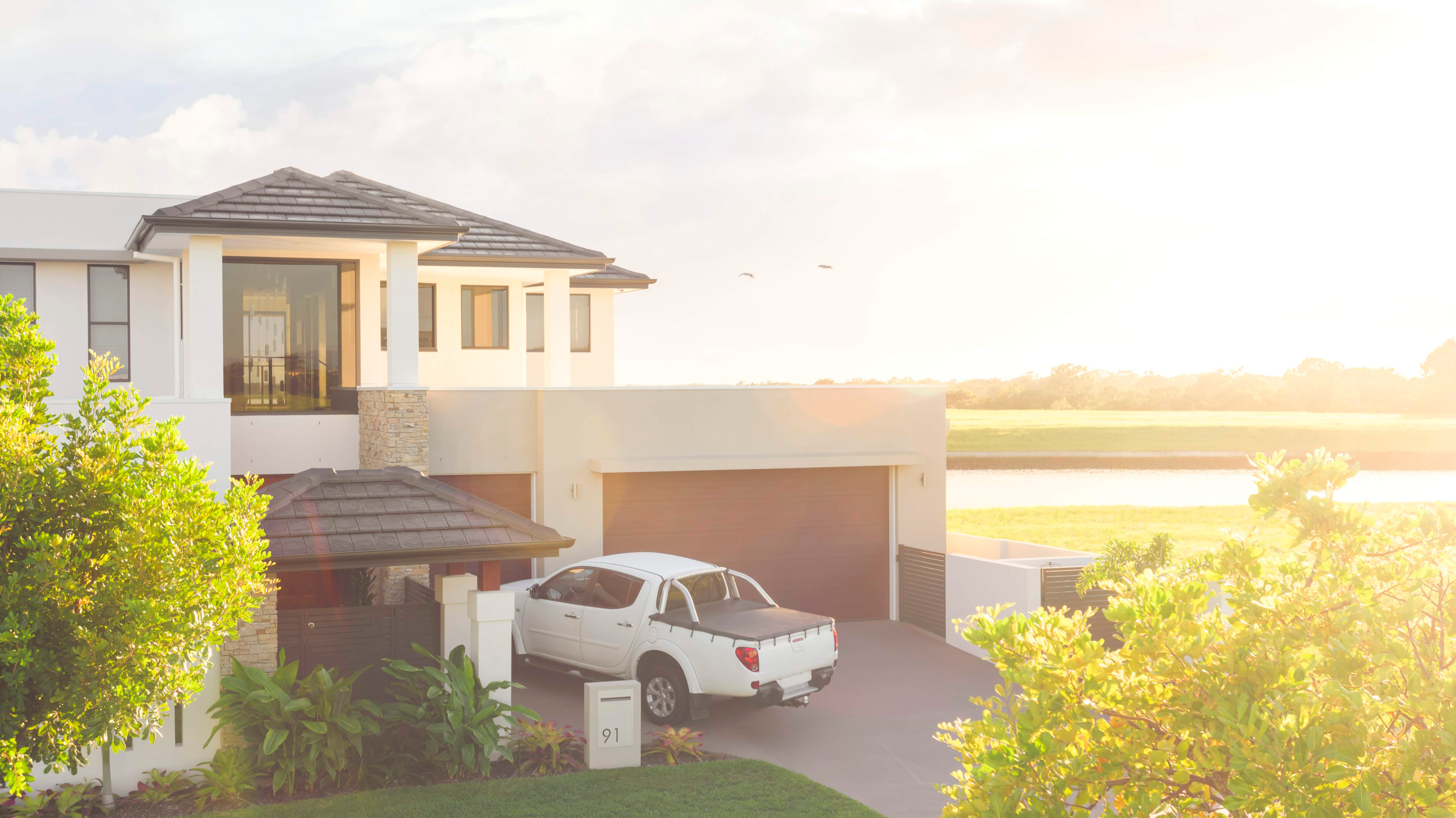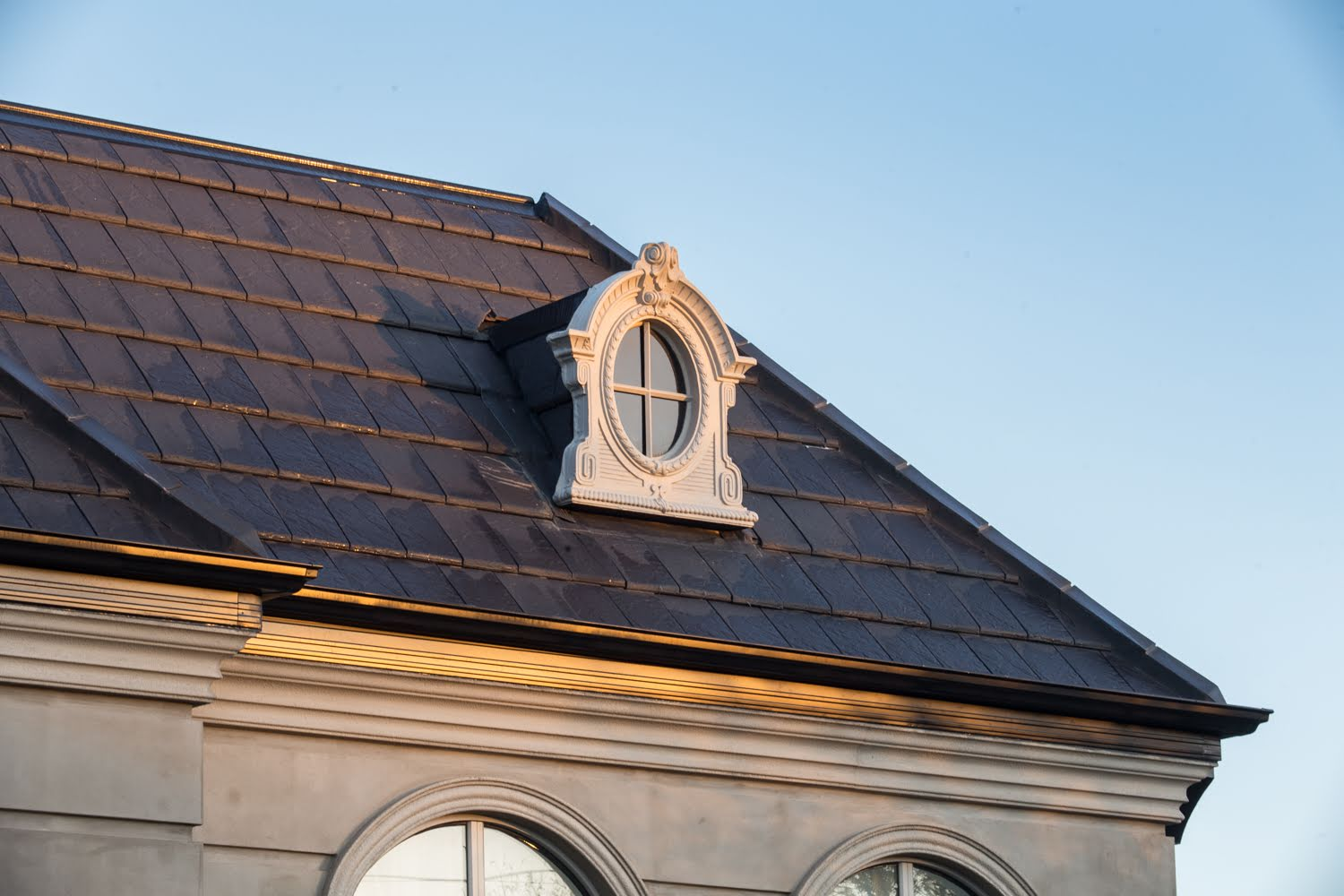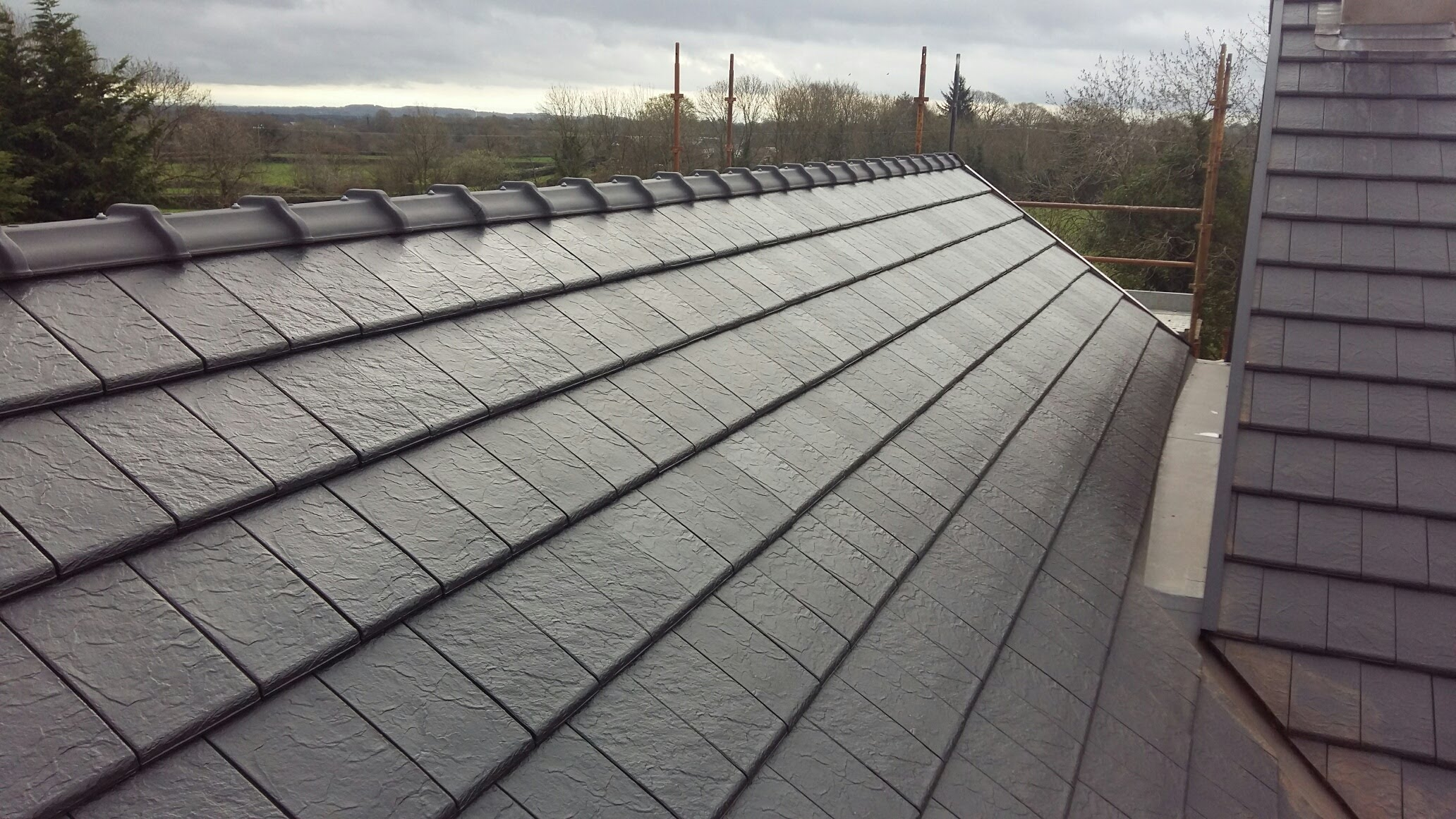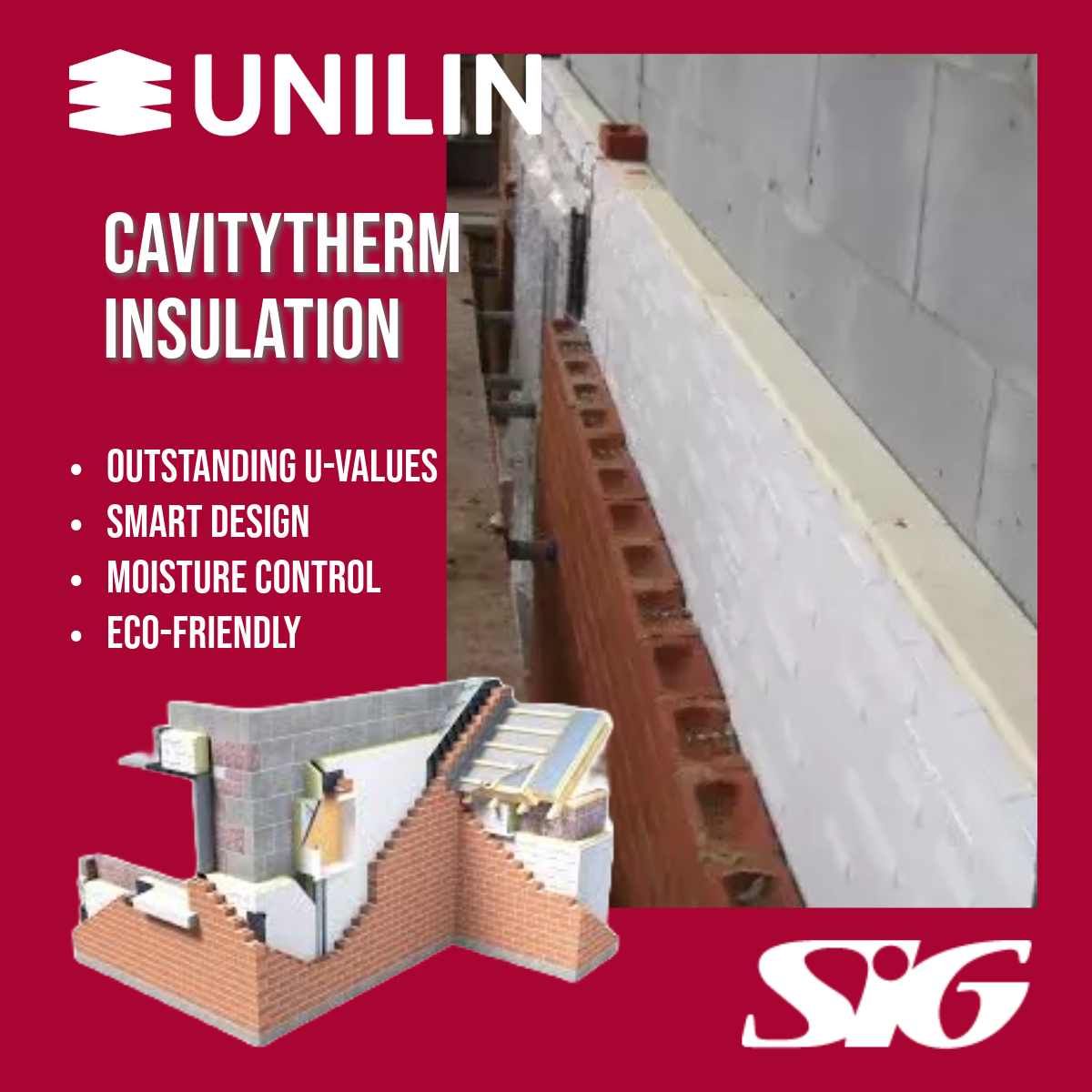When it comes to selecting the right roofing solution, there are many factors to consider, from durability and weather resistance to cost-effectiveness and aesthetic appeal.
Clay tiles have become a popular choice for roofing in Ireland, thanks to their versatility and range of benefits. In this blog, we’ll explore the various advantages of clay tiles, from their non-fading colour and low water absorption rate to their suitability for low-pitched roofs and cost savings over time.
We’ll also discuss specific types of clay tiles, including the Rosemary and Planum Smooth options, as well as how SIG Roofing can provide technical advice and top-quality products and accessories to help you achieve the perfect roofing solution for your building.

What are Clay Roof Tiles?
Clay roof tiles are a natural product made by baking moulded clay. The high temperatures used to bake clay tiles bond the colour so it will never peel or fade. They are often viewed as a natural alternative to slate.
What are the advantages of Clay Roof Tiles?
Large format clay tiles such as Planum Blackstone or Planum Smooth offer the advantages of a natural product at a more affordable price. The main advantages of clay tiles are:
- Durability
- Non-fading colour and appearance
- Cost savings
- Water absorption
- Low pitch solution
So how do the advantages compare against other roof tiles on the market when put to the test in Ireland where you often get all four seasons of weather in one day?
What makes clay tiles a good long-term choice for your roof?
Clay tiles have a long lifespan and are resistant to harsh weather conditions, making them a popular and durable roofing choice in Ireland for centuries.
They can withstand heavy rain, wind, and freezing temperatures without deteriorating, and can last over 100 years, outperforming concrete tiles which last 30 to 50 years. Fibre cement slates have a structural warranty of 30 years making clay a more durable choice.
While other roofing materials may have advantages such as lower cost or easier installation, the proven durability of clay tiles in Ireland is unmatched, making them a reliable and aesthetically pleasing option for both homes and businesses.

What makes clay tiles a popular choice for roofing in terms of design and aesthetics?
Clay tiles are known for their ability to maintain their colour and appearance over time, making them a popular choice for roofing in Ireland. Unlike other roofing materials that may fade or deteriorate over time due to exposure to UV rays and weathering, clay tiles retain their vibrant colours and sharp appearance for decades.
This non-fading characteristic of clay tiles is due to their manufacturing process. The clay is fired at extremely high temperatures, which gives the tiles their hard, durable surface and prevents fading.
Additionally, the glazes used to coat the tiles provide an extra layer of protection against UV rays and other environmental factors that can cause fading or discolouration.
In Ireland’s climate, where the weather can be harsh and unpredictable, the non-fading quality of clay tiles is particularly valuable.
The same cannot be said for concrete tiles or fibre cement slates. The technology used to paint concrete tiles and fibre cement slates may not be as effective, and therefore it may fade over time. Additionally, since concrete is porous, it is prone to staining, which can also affect its appearance.
Why are clay roofing tiles a cost-effective option?
While the initial cost of installing clay tiles for roofing in Ireland may be higher than some other roofing materials, such as asphalt shingles or metal roofing, the long-term cost savings can make them a more cost-effective choice.
Less maintenance and replacement is required with a clay roof tile because of its durability. They have a natural insulating quality, reducing heating and cooling costs, and their non-fading appearance reduces the need for frequent repainting or replacement.
Compared to fibre cement or natural slate, large-format clay tiles can save on labour, battens, and fixings, and there’s no need for grading, resulting in lower waste.
Concrete tiles may be the more affordable roofing option when compared to clay tiles however clay tiles are the superior product. In comparison to fibre cement slate or natural slates – large format clay tiles (such as Blackstone or Planum Smooth) will save on labour.
Generally, tiling rates are cheaper than slating rates, and there are fewer tiles per square meter (10.5 tiles vs 13.5 slates).

Why is water absorption in roofing tiles an important factor to consider?
Clay tiles are generally known to have low water absorption rates, which is beneficial in regions such as Ireland where rainfall can be frequent and heavy.
Water absorption refers to the amount of water that a material can absorb, and is measured as a percentage of the material’s weight. Clay tiles are typically designed to have a low absorption rate, meaning that they are less likely to allow water to penetrate into the roof structure and cause damage.
High water absorption rates can lead to tiles becoming saturated with water, which can cause them to become heavy and potentially crack or break under the weight. This can also result in water penetrating through to the underlying roof structure, which can lead to rot and decay.
The low water absorption rate of clay tiles in Ireland is a valuable characteristic that can help to ensure the longevity and durability of roofs in the region. It is important to note that proper installation and maintenance are also crucial in ensuring the optimal performance of clay tiles and preventing water damage.
Alternatives like concrete tiles have a water absorption of up to 13%, and clay tiles have a water absorption of about 6%. As a result, concrete tiles may be more prone to mildew growth and stains.
What makes clay tiles a good roofing solution for buildings with low-pitched roofs?
Clay tiles can be an effective roofing solution for buildings in Ireland with low-pitched roofs. In general, traditional roofing materials such as slate or concrete tiles may require steeper pitches for optimal water shedding and weather resistance.
However, clay tiles are more adaptable to low-pitched roofs, making them a versatile option for a range of building designs.
Clay tiles are designed to interlock with each other, providing a tighter fit that can help to prevent water penetration, even on low-pitched roofs. Additionally, the weight and durability of clay tiles can make them suitable for use on low-pitched roofs where lighter materials might not be as effective.
Proper installation and maintenance are crucial in ensuring the effectiveness of clay tiles on low-pitched roofs. Adequate ventilation and underlayment can help to prevent moisture buildup, and regular inspections can help to identify and address any potential issues early.
Interlocking clay tiles such as Blackstone or Planum Smooth can be guaranteed on pitch roofs as low as 10°. This makes them a cost-effective option for any low-pitch roofs. Concrete tiles on average cannot be laid lower than 22.5° and the minimum pitch for slates is 22.5°.

What Type Of Clay Roof Tiles Are Available to Me in Ireland?
SIG has a wide range of clay tiles available in Ireland and in stock in branches located throughout the country. Known as a natural alternative to a slate roof, and a good choice in terms of enhancing the look of a property, SIG Roofing offers the highest quality clay roof tiles and accessories to the Irish market and the following options in stock:
-
Planum Smooth Clay Tile – Black
The Planum Smooth Clay Tile offers traditional elegance with a cutting-edge design. This is our most requested tile due to its size, strength, and lightness.
-
Planum Textured Clay Tile – Blackstone
The Blackstone Clay Tile offers the same strength and lightness with a textured finish to give a more natural slate appearance.
-
Planum Smooth Clay Tile – Red
The Planum Smooth clay tile is also available in a striking shade of red, adding a bold and vibrant option to roofing designs. The tile’s smooth surface and interlocking design provide durability and resistance to harsh weather conditions.
-
Visum 3 Clay Tile – grey Idella – grey Vermont – black slate – russet – red rustic – old English red rustic.
VISUM 3 is an interlocking clay roof tile which imitates in an exceptional way a plain tile roof once the roof is finished.
By taking VISUM 3 roof tiles instead of real plain tiles, your roofing cost is over 30% less, while you keep the same result. VISUM 3 is a clay roof tile of “Klinker” quality and is guaranteed 100 years by the producer.
-
Rosemary Clay Tiles
The Rosemary name is synonymous with clay plain tiles, adding distinction and character to pitched roofs for over 180 years. Today, a range of single and cross-camber tiles combine the quality of hand-crafted clay with the reliability of modern machine-made techniques.
Produced from the finest Etruria Marl clay, Rosemary is offered in a range of weathered, brindled and single colours that create striking and attractive roofs.

If you’re looking for expert advice and high-quality roofing products in Ireland, SIG Roofing is a valuable resource.
From the durability and weather resistance of clay tiles to their cost-effectiveness and low-pitched solutions, SIG can help you find the right roofing solution for your building.
With a range of products and accessories, as well as technical expertise and support, SIG is equipped to provide everything you need to achieve the perfect roof for your building.
Whether you’re a homeowner or a professional contractor, SIG can offer the guidance and materials to make your roofing project a success. You might also be interested in reading about solar roof tiles that integrate with our planum clay tiles or reading about the differences between natural vs artificial roof slate.



